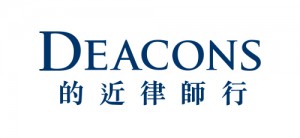11 November 2020
On 30 October 2020, various provinces and cities in mainland China announced the restructuring of its government institutions. Following the changes, tax authorities in various cities such as Beijing, Shanghai, Shenzhen, Tianjin and Hunan will become responsible for collecting social insurance premiums (Reform) instead of the Human Resources Authority, which was previously responsible in many regions. It is imperative for both local and foreign-funded enterprises intending to carry out business in China to fully understand the impact of the adjustment of social insurance collection and management regime on their business operations and labour costs, as well as the development of future related policies.
This article will briefly describe the origin, current status and future trend of relevant policies concerning the Reform, and further analyse the compliance and risk issues and counter-measures so as to provide a reference for human resources managers to respond accordingly.
Background
The reform of the social insurance collection regime did not happen overnight, a brief review of the Reform process in recent years is set out as follows:
-
Prior to 2018, the social insurance premiums had been collected by tax authorities in a few provinces and cities in mainland China.
-
Since 2018, the Chinese Communist Party’s Central Committee released the “Plan for Deepening Reform of Party and State Institutions”, which clarified the Reform regime.
-
In July 2018, China’s Central Committee and the State Council released the “Reform Plan on the National and Local Taxation Collection and Management System”, which clearly required the implementation of the above reform plan to take effect from 1 January 2019.
-
Since the Reform involves much basic work, it could not be implemented speedily throughout the nation.
-
On 1 April 2019, the State Council issued the “Notice on Comprehensive Plans for Reducing Social Insurance Premiums”.
-
On 12 December 2019, the State Administration of Taxation set up the Social Insurance Department.
-
On 30 October 2020, various places announced the implementation of the Reform.
So far, the policies in all provinces and cities in mainland China have clearly stipulated that the tax authority shall be solely responsible for the collection of social insurance premiums by enterprises and institutions. However, as the social insurance agencies and/or tax authorities are responsible for the assessment of social insurance premiums, regulations vary from place to place.
Assessment and collection of social insurance premiums: Different regimes and future trend
Currently, social insurance premiums are assessed and collected under two main regimes as follows:
-
“Assessment by social insurance agencies, collection by tax authority” -under which social insurance premiums are assessed by social insurance administrative agencies and collected by tax authorities; and
-
“Assessment and collection by tax authority” -under which tax authorities are responsible for both the assessment and collection of social insurance premiums.
|
Comparison of various collection regimes |
|||
|
|
Collection by social insurance administrative agencies (already replaced) |
Assessment by social insurance agencies, collection by tax authorities (including Beijing, Shenzhen, Shanghai and Tianjin, etc.) |
Assessment and collection by tax authorities (including Guangzhou, etc.) |
|
Payment channels |
Social insurance administrative agencies |
Tax authorities |
|
|
Calculation base of social insurance contribution |
Voluntary declaration by company |
Voluntary declaration by companies & data comparison by tax authorities (possible) |
Voluntary declaration by companies & data comparison by tax authorities (high possibility) |
|
Assessment |
Handled by social insurance administrative agencies |
Handled by tax authorities |
|
|
Benefit |
Handled by social insurance administrative agencies |
||
Under the Reform plan, the “Assessment and collection by tax authorities” regime will be adopted nationwide. In addition, the matching of information of social insurance participants with the information of personal declaration of individual income tax, and the matching of the payment base of social insurance premiums with wages and salaries corresponding to the individual income tax collection and payment will be realised gradually.
Compliance issues
With the implementation of the Reform, tax authorities may possibly undertake a comparison between social insurance data of enterprises with the tax information in order to determine if the social insurance declaration and payment of enterprises are in compliance. Multi-national/cross-border companies should pay attention to following compliance risks:
-
Payment obligations of social insurance premiums will become compulsory and transparent for Hong Kong, Macao and Taiwan (HMT) residents and foreigners who work in the PRC
In October 2011, the Ministry of Human Resources and Social insurance (MOHRSS) issued the “Interim Measures for the Participation in Social Insurance of Foreigners Employed in China”, requiring employers to make social insurance premiums for all employees who are non-PRC nationals (including direct hirers and secondees) working in mainland China having obtained legal work and residence permits (including both permanent residents (PRs) and non-PRs), unless he/she is exempted in accordance with the bilateral agreement between China and his/her home country regarding mutual exemption of social insurance.
Similarly, the “Interim Measures for the Participation in Social Insurance by HMT Residents Employed in the Mainland”, which came into effect on 1 January 2020, also imposes similar obligations for HMT residents with certain exemptions.
However, the actual measures implemented by different local governments differ greatly. For example, Shanghai has always adopted the practice of “non-compulsory and negotiable” for enterprises in relation to social insurance premiums of their HMT and foreign employees. Following the implementation of the Reform, all declared income of employees earned in the PRC will be included in the assessment of social insurance premiums. Therefore, we believe that the payment of social insurance premiums for foreigners and HMT residents will very likely become compulsory and transparent.
-
Other illegal actions leading to discrepancies between data of corporate social insurance and tax data are more likely to be identified
Following the implementation of the Reform, illegal activities such as engaging staffing agencies to make social insurance premiums for employees who perform their duties in a region different from where the enterprise is incorporated and registered; making social insurance declarations based on omissions or inaccurate chargeable amount; agreeing with employees on giving up social insurance or no social insurance during the probation period, etc., may lead to discrepancies between tax filings and social insurance declarations being identified by local tax authorities.
Legal consequences
According to the Labour Contract Law, the Social Insurance Law, the Interim Regulations on the Collection and Payment of Social Insurance Premiums and other relevant laws and regulations of the PRC, the legal consequences for common violations in relation to the payment of social insurance premiums by companies are as follows:
|
Violations |
Legal consequences |
|
Failure to make social insurance registration and rectify within the prescribed time limit |
|
|
Failure to make social insurance registration, change or cancellation of registration, or failure to report the correct amount of social insurance premiums payable in accordance with the provisions |
|
|
Failure to comply with the social insurance procedures for employees resulting in their loss of social insurance benefits |
|
|
Failure to pay social insurance premiums in full and/or within the prescribed time limit |
|
|
|
|
Failure to make social insurance premiums for employees in accordance with law |
|
|
Wilful refusal to pay social insurance contribution or late fees |
|
|
Failure to make social insurance registration in accordance with the law and wilful refusal to rectify |
|
|
Failure to truthfully declare the income chargeable to social insurance and wilful refusal to rectify |
|
|
Having the financial means and required to make social insurance premiums but wilfully refused to do so |
Measures
As the “Assessment and collection by tax authorities” has been implemented, tax authorities may review the historical social insurance data and seek recovery of the outstanding amount. We recommend companies to start an internal compliance audit in the near future, and rectify any possible non-compliance conduct. The following measures could be considered for lowering the labour cost:
-
Direct measures
-
Reduce headcount: Company can improve production efficiency and reduce headcount by redesigning the organisational structure and optimising the management team, etc.
-
Salary reduction: The social insurance premium is calculated based on the employee’s actual salary. Therefore, reducing employees’ wages is the most direct measure to reduce the cost of social insurance for the company. At the same time, the company should pay attention to the compliance risks involved in the process of salary reduction and staff re-positioning.
-
-
Indirect measures
-
Engagement: Companies may consider adopting flexible engagement such as hiring intern, part-time staff, staffing agencies or staff outsourcing for non-core positions to ease social insurance premiums pressure;
-
Design of remuneration structure: Companies may make full use of mainland China’s policies and regulations on excluding total payroll and social premiums base from the actual salary structure and accounting record. Enterprises are reminded that certain items can only be used in a short-term manner and the amount cannot be too large (e.g., one-child related subsidy).
-
Conclusion
With the improvement of systems such as big data, and the implementation of the Reform, the collection and administration of social insurance premiums will be further strengthened. From a long-term perspective, all non-tax costs (e.g., Housing Fund, and Disability Insurance Fund) may also be included as part of the tax administration system, with a gradual transition of the responsibilities of tax authorities from “collection” to both “collection and management” of non-tax cost.
Under such trend, companies in mainland China should ensure compliance with laws and regulations in the design and implementation of their tax planning scheme. Foreign enterprises intending to carry out business in China should design their organisational structure and personal arrangement scheme of their branches in accordance with the overall policy.
Deacons will continue to monitor the development of relevant policies and laws and provide an update.
For further information, please contact:
Helen Liao, Deacons
helen.liao@deacons.com.hk





